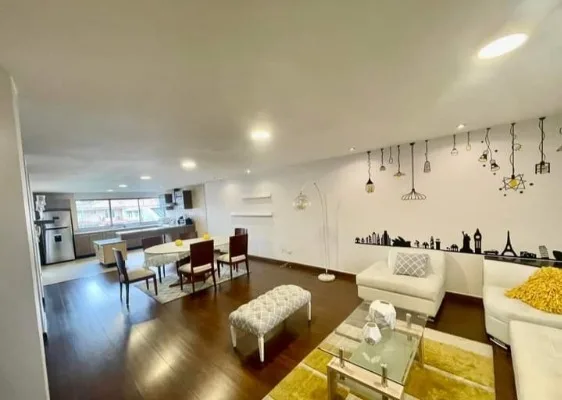Claiming he is no proxy for Rafael Correa, Moreno promises changes in policy and style
By Andres Schipani
Ecuador’s president-elect swept to victory this week partly on the coat-tails of Rafael Correa, the country’s mercurial leader, who anointed him as his successor. But, he insists: “I will be making the decisions in the next government. I will apply my style, which is a different style.”

Correa and Moreno at political rally.
“People know me as a person who likes humour, who likes dialogue, who likes listening,” he adds, in an interview with a handful of foreign media in Quito, including the Financial Times.
After a decade in power, Mr Correa acquired a reputation among opponents as a thin-skinned bully who used the media as a whipping boy. The leftist strongman’s former deputy promises a different approach. “I have some differences with him regarding freedom of expression,” he says. “The president needs to be willing to be more tolerant than any regular citizen.”
Mr Moreno — who has a penchant for cracking jokes and peppered Wednesday’s interview with references to Tolstoy, Gramsci, Newton, and quantum physics — has long been seen as cut from a different cloth than his former boss.
After Mr Correa announced Mr Moreno as his running mate for the 2007 election, a U.S. embassy cable described him as “a motivational speaker and promoter of ‘laugh therapy’ for the disabled, [who] hails from the Amazon region and is himself wheelchair-bound”.
In person, the 64-year-old former UN official, who has used a wheelchair since he was shot during an attempted robbery almost two decades ago, is more affable and emollient than the firebrand Mr Correa. Among the region’s leftist leaders, he may be closer ideologically as well as in style to Chile’s moderate leftist Michelle Bachelet than to the man he calls his “dear friend”.
Mr Moreno comes to power at a time of political polarisation in Ecuador, in which disenchantment with the slowing economy and Mr Correa’s strong-arm style sparked a divisive election campaign between the president-elect and Guillermo Lasso, his conservative rival.
The tensions peaked this week when Mr Lasso challenged the election results — a two-point victory for Moreno — and demanded a recount. With some pro-Lasso protesters still on the streets, Mr Moreno is aware of his responsibility in restoring harmony. “I’m in charge of achieving the unity that is now a little fractured, a little fissured,” he says.
However, the new leader will not have the wriggle room his predecessor enjoyed for most of his decade in power. On the back of high oil prices, Mr Correa presided over a doubling in the size of the Opec nation’s economy and a big fall in poverty rates.
Unleashing a public spending boom, the president “spent at least three Marshall plans — more than $330bn — in his decade in power” in the country of 16 million people, according to the Quito-based investment bank Analytica Securities.
Now Ecuador’s economy is reeling from a recession that saw it shrink 2 per cent last year, although Mr Moreno is hoping for growth of 1.4 per cent this year.
But critics dismiss Mr Moreno as being clueless about economics and fear that the shadow of Mr Correa — who had vowed to move to Belgium, his wife’s home country, when he stepped down — will loom large during the next four years. Some suggest he could even attempt a comeback in the style of Russia’s Vladimir Putin.
Moreover, Mr Moreno has pledged to continue his predecessor’s social projects. Shrugging off economists’ concerns that Ecuador’s budget deficit — which they estimate at 5 to 6 per cent of gross domestic product and Mr Moreno puts slightly lower at 4 to 5 per cent — could prove a hurdle, he plans to build 190,000 free houses for Ecuador’s poor while borrowing $2 billion a year for social programs.
He is looking to China, one of Ecuador’s leading creditors, as one source of finance. “China has given us credit without asking major questions,” he says. Quito has borrowed more than $17 billion from Beijing since 2010, according to the China-Latin America Finance Database. But, he adds, Chinese funds are “a bit more expensive” than others.
Another option would be an appeal to yield-hungry bondholders with short memories: after a voluntary default on $3.2bn worth of debt in 2008, the country successfully returned to international markets in 2014. Mr Moreno has also not ruled out approaching the International Monetary Fund — Mr Correa’s ideological opposite — as long as any conditions attached by the fund are not “exaggerated”.
Ecuador’s foreign debt stands at $27.6 billion in an economy worth $100 billion, he says. Economists estimate the government’s financing needs at more than $10 billion this year. “The best investments are those made on human beings,” he says.
Mr Moreno says he became disenchanted with hardline, old school socialism during the Soviet invasion of Afghanistan in 1979, which he saw as unacceptable.
Now he would rather distance himself from the latest stone in the shoe of the region’s leftwing leaders: Nicolás Maduro’s Venezuela, an ally of Ecuador but one that has drawn international condemnation for its increasingly repressive government.
“We respect the self-determination of each people, every people will find its way,” he says. But, he adds: “We will always plead for the fulfilment of democracy.”
___________________
Credit: The Financial Times, www.ft.com

















